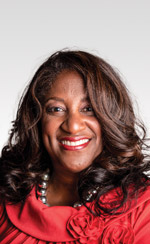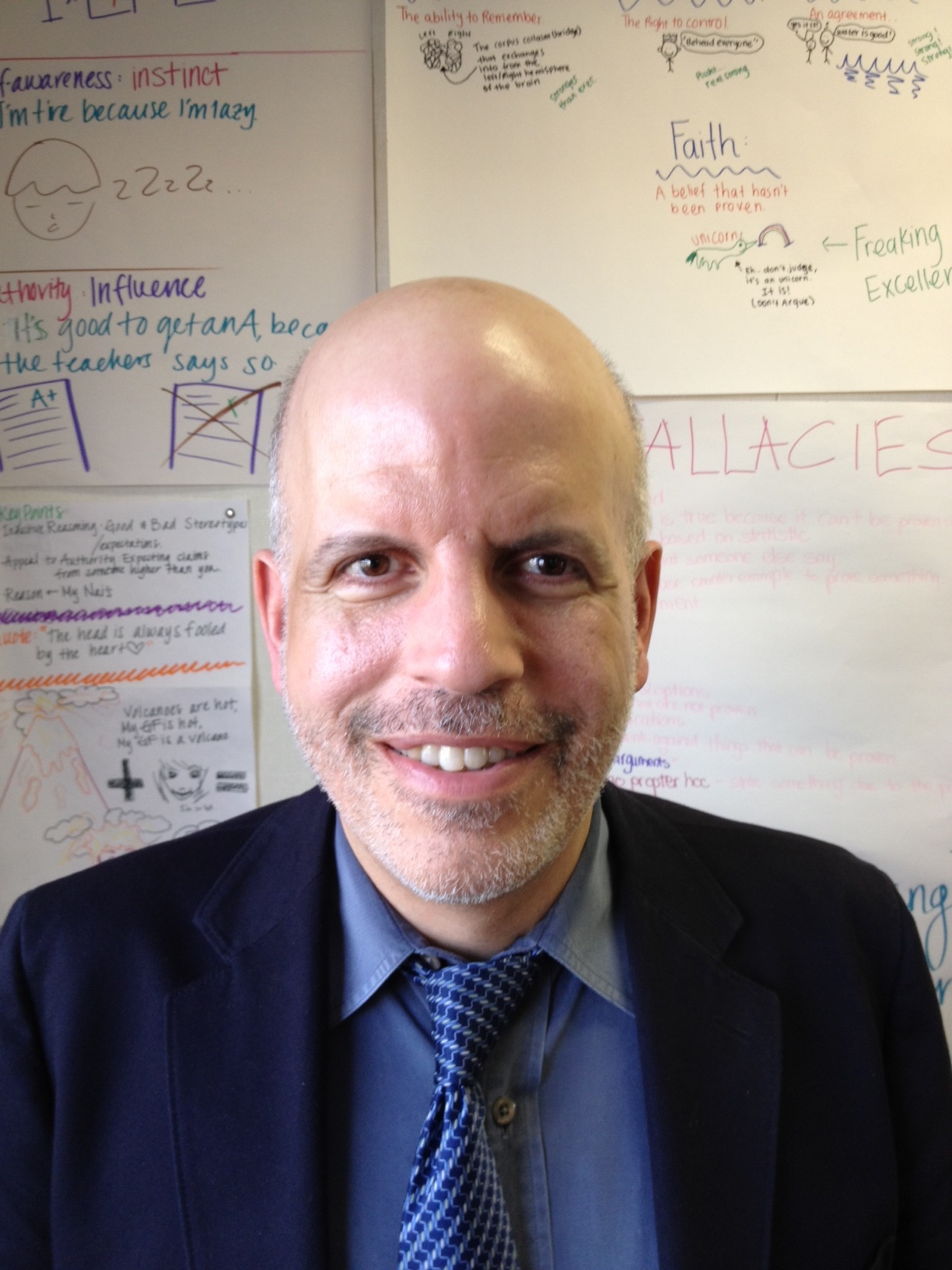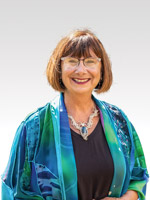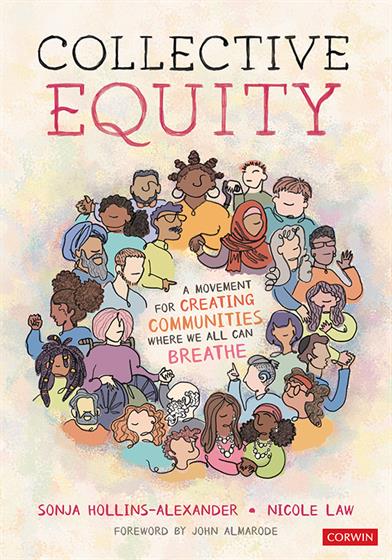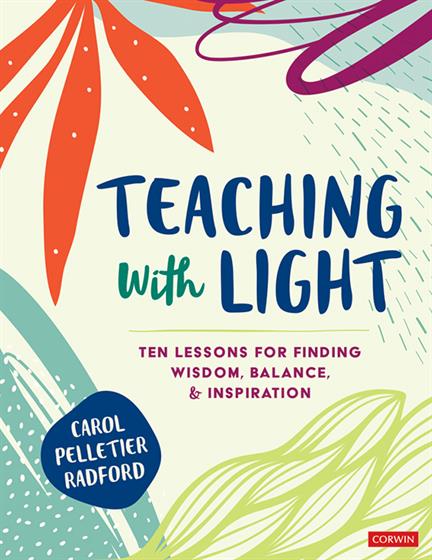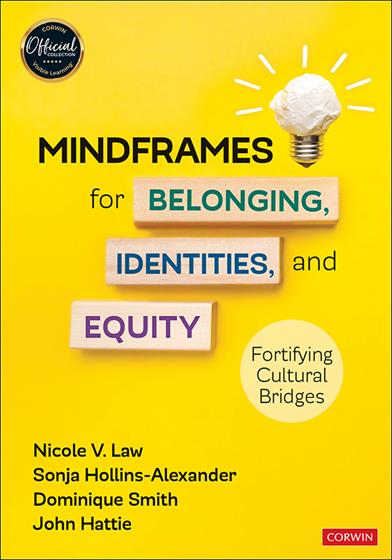[00:00:03.10] ANNOUNCER: Welcome to Corwin's Teacher To Teacher Podcast with
host Carol Pelletier Radford. Carol is an experienced classroom teacher,
university educator, founder of mentoring in action.com, and author of four
best selling professional books for teachers. She believes the best form of
professional learning happens when teachers engage in authentic conversations
and share their wisdom.
[00:00:23.99] In every episode, Carol and her guests share stories about
pivotal moments in their careers, successful classroom strategies, and personal
actions they take to minimize stress and stay healthy. The Teacher To Teacher
podcast is a place to engage in authentic conversation and reflection with
experienced educators. We hope these conversations will energize you, keep you
inspired, and remind you why you chose to become a teacher.
[00:00:49.38] CAROL PELLETIER RADFORD: Welcome to season three of the
Teacher To Teacher Podcast. I am your host, Carol Pelletier Radford, and I am
so happy to be part of a conversation with two experienced educators. The theme
for season three is based on the book I wrote titled Teaching With Light, 10
Lessons For Finding Wisdom, Balance, And Inspiration. Each of the 10 episodes
for this season mirror the 10 lessons in the book.
[00:01:22.71] And today's episode is really special. It's titled Pay It
Forward, and it is the last lesson in the book, and it's the last episode in
season three. I have two fabulous guests and I'm going to have them introduce
themselves in a moment. But because this is the last episode and it's the
culmination of the teaching with light book, I just want to take a few moments
to share with all of you that are listening the reason I chose Pay It Forward
for this final lesson in my life as a teacher.
[00:02:02.07] So when I was writing this book for Corwin in 2019, 2020, it
came out in 2020, I had all the nine lessons. And then I was thinking about,
wow, how am I ending this? What's the story? What is it in my career that I
have reflected on that has made a difference? And I was reminded that when I
retired from the university-- I'm a former classroom teacher.
[00:02:29.53] I taught for 21 years in fifth grade, and then I worked in
higher education at two different universities. And then I came to the point
where that was done and it was the retirement time, the r-word. And I wasn't
sure that that word reflected me. I still had energy. I still wanted to work. I
wanted to do something.
[00:02:57.53] And I went to a session and heard the poet Mary Oliver in
person. She lived on the cape, and she's a very, very famous poet. And she read
her poem The Summer Day. And I have to say honestly, I had goosebumps when I
heard her read, because what she said in the last line was, "Tell me, what
is it you plan to do with your one wild and precious life?" And even
hearing that and saying it now brings emotion to me because I knew I had a
choice. I had done my classroom time. I had done my university time, and I
wasn't sure what a retired teacher could contribute to the profession that I
loved so much.
[00:03:56.35] I came across a quote by John Dewey, and he said, "One of
the saddest things about US education is that the wisdom of our most successful
teachers is lost when they retire." And the inspiration that I got from
that re-inspired me to think about, well, what do I want to do? Do I want to
write more books? Do I want to create a center for legacy teachers? I call
retired teachers legacy teachers. There's a legacy in all we have learned.
[00:04:36.86] I came across Parker Palmer's book, and I'm so honored Parker
Palmer wrote the endorsement for the Teaching With Light book. He read the book
before it was published, and he wrote a beautiful endorsement of teaching with
light. But he has written so many other books and essays called The Dance Of
The Generations And The Music Of Mentoring.
[00:04:58.90] And he talks about passing the baton to the young and saying,
we need to change that metaphor. We need to stay with the young. The legacy
teachers need to collaborate with the young, and not pass it and say, we're
done. We need to work together to bring this forward.
[00:05:20.77] So when those two things came together, and the idea that I
wanted to become a yoga teacher instead of write another book, I came up with
this pay it forward idea that I wasn't done, that I had more to offer, created
my own company, Mentoring In Action, wrote more books with Corwin, who is a
fabulous partner, and I tell my story and reflect, recruit, redirect, repeat.
[00:05:54.02] So instead of retiring, if you're listening as a close to
retirement teacher in this audience, I think it's time for all of us to
redirect and consider how we can pay it forward so you can hear that story. As
I introduced and bring on my guests, their stories are a little different
because they're paying it forward from where they are right now. Each one of
them brings a unique perspective and a pay it forward momentum that helps our
profession every day.
[00:06:30.61] So I guess what I'm saying in my pay it forward message for
this last episode is, we need to pay it forward from wherever we are, and that
we're not done yet. So let's begin our conversation by having our guests
introduce themselves. So, Larry, I turn to you first. Tell us who you are,
where you're teaching, and what else you're doing besides teaching to pay it
forward.
[00:07:02.54] LARRY FERLAZZO: Hello, I'm Larry Ferlazzo. I have been a
teacher at Luther Burbank High School in Sacramento for the past 22 years. And
I teach both English language learners, and English proficient students, and
the English Social Studies, and international baccalaureate classes. And I've
written or edited 13 books related to education. And also, I'm a teacher advice
columnist for Education Week.
[00:07:41.29] CAROL PELLETIER RADFORD: And we do need teacher advice. So
thank you, Larry. And I am honored to have been selected for several of your Ed
Week blogs. And it always has been a challenge to try to get my message into
600 words or less.
[00:07:56.50] LARRY FERLAZZO: I appreciate it. And I've appreciated your
contributions.
[00:08:00.66] CAROL PELLETIER RADFORD: Oh, thank you so much. And Sonja, our
other guests for today, please share your teaching journey and what you're up
to now.
[00:08:10.37] SONJA HOLLINS-ALEXANDER: Yes, certainly. I'm Sonja
Hollins-Alexander, and I have been on this professional journey as an educator
for the past 30 years. I actually entered into education as a school social
worker. So one of the things that I know about myself is I always want to be an
advocate at heart. But what I realized as a school social worker is there were
other spaces that I could be in to demonstrate that advocacy, and the classroom
was one of them.
[00:08:42.39] And so I had the opportunity to be a middle grades English
language arts teacher and work with some of the most amazing students ever. And
as I continue that journey, I wanted to determine how could I expand the work
that I did, extend my territory. And I went back to school and I became a
building administrator.
[00:09:04.23] So I was an assistant principal for a period of time. And then
I was a principal at what I would define as one of the most beautifully diverse
schools ever, where I would say to you, I probably learned more in that role
than I have learned at any other role. And specifically, around what it means
to pay it forward.
[00:09:23.69] After doing that work, I went on to the district office
because I felt a heart for educators. And I really wanted to spend more time
developing them. And so I transitioned into a position as the director of
professional learning. And so my hope in that role was that I would be able to
provide educators with developmental opportunities so that they could be their
very best when they're in front of the students that I love to advocate for.
[00:09:50.79] And so my journey was not done then. I continued to be in
places and spaces where I felt like I could continue to extend what had been
given to me in other ways. And I found my way as an author with Corwin. And in
2017, Corwin reached out to me, and they were seeking a director of
professional learning. And I was very fortunate to have been given this
position.
[00:10:18.96] And so I am now at Corwin. I continue to work in professional
learning, but my latest title is associate vice president of content,
development, and scholar. So I just continue to work with amazing authors, such
as you, Carol, seeking ways to be able to amplify the voices of you so that our
educators can have access to all this content and knowledge. So that's where I
am now.
[00:10:47.95] CAROL PELLETIER RADFORD: Wow.
[00:10:48.31] SONJA HOLLINS-ALEXANDER: I'm continuing to try to pay it
forward.
[00:10:50.66] CAROL PELLETIER RADFORD: You are doing-- both of you. So the
13 books, the advice columns, the supporting authors, being an author yourself,
all of that. I want to dig in a little bit because I love stories and finding
out. We have these resumes and we list all the things, but then there are these
moments when we make decisions because we have to make decisions to move
forward. So, Larry, let's dig in a little. I'm so curious as to how and why you
wanted to do an advice column or got into the Ed Week, or the writing. How did
that all start as a teacher? Because teachers might want to do that. And I want
to hear how you started.
[00:11:40.28] LARRY FERLAZZO: Well, I have been writing a personal
resource-sharing blog for teachers for quite a while and had also written,
probably, a couple of books at that point. It was about 13 years ago. And
Education Week approached me and just asked if I might be interested in doing
something for them, and they asked if I had any ideas.
[00:12:08.57] And one of the things that had become clear to me in my
blogging in previous years-- and this is before lots of social media. I mean,
blogging was the in thing and leaving comments on people's blog posts. There
was a lot of knowledge out there that I could learn a lot from, and I thought
that others could.
[00:12:39.30] So I approached the idea of doing a teacher advice column, but
a little different. That instead of me just doing all the writing in response
to questions, that tapping into the wealth of knowledge of teachers throughout
the country would be a great opportunity for everyone, where everybody gets a
chance to pay it forward to write an answer and to-- because I think there's a
lot of stuff that's written about education that is not necessarily written by
people who are that closely connected to schools.
[00:13:23.28] CAROL PELLETIER RADFORD: Bravo. Thank you for saying that.
Yes. The listeners are all going yes, yes, yes. We want teacher advice.
[00:13:31.68] LARRY FERLAZZO: So to have teacher advice that is grounded in
the day-to-day experience of the classroom would be a great opportunity for me
and others to learn from. And that's--
[00:13:46.92] CAROL PELLETIER RADFORD: I love that story. And you said yes,
Larry. You said yes. You could have said, I'm doing too much. I'm already
overwhelmed in my classroom. Because a lot of us that work with teachers,
they're busy to reach out. But you chose to say yes and you designed it the way
you want. I love that you included other voices. Sonja, what do you think of
this idea? Have you submitted to him yet?
[00:14:20.13] SONJA HOLLINS-ALEXANDER: No, but I'm hoping that Larry and I
can connect after--
[00:14:23.83] CAROL PELLETIER RADFORD: Yeah.
[00:14:25.72] LARRY FERLAZZO: I'd love to get into--
[00:14:28.05] CAROL PELLETIER RADFORD: All right.
[00:14:28.90] LARRY FERLAZZO: --your wisdom into Ed Week.
[00:14:31.99] CAROL PELLETIER RADFORD: Oh, you have to get it in early too,
Sonja. I have to write it six months ahead. He's very, very organized.
[00:14:39.29] SONJA HOLLINS-ALEXANDER: [INAUDIBLE], Larry.
[00:14:40.95] CAROL PELLETIER RADFORD: So what did you like about what Larry
just said?
[00:14:43.51] SONJA HOLLINS-ALEXANDER: Wow. First of all, you probably-- I
mean, I don't know if you could feel just my appreciation, Larry, for the ways
in which you have made room for educators. And as I listen to you, I thought
about myself when I was in k-12, and things that I wanted to be able to share,
and my hope that whatever I had to share, that somebody wanted to listen. And
so to know that you have created a space to elevate the voices of educators is
just phenomenal.
[00:15:18.97] And for me, personally, when I was in that first space of
writing my book, Larry, I will tell you, I was terrified. I didn't think that
anybody would want to hear my ideas. I didn't know that I had the credentials,
so to speak, to be able to share with others what I had to say. And so having
people such as you create these spaces for educators is a real yay rah moment.
[00:15:46.70] I just feel so excited. And to your point, I'm trying to do
something similar. I did eventually get up enough courage to write that book,
my first one in 2013. And the exciting part is, since then, I've been able to
do two additional ones for a girl who didn't even think that she could write
one.
[00:16:08.99] And so there's so many opportunities, and specifically, so
many needs for us to hear the voices of educators, those who are in the
trenches, those who are doing the work, those who have the experiences that
they need to share with others to be able to pay it forward. So I'm excited
about the work that you do, and I can totally resonate with the space of reward
that continues to give those of us who are getting on up there in our career.
And we have an opportunity to support and bring others along.
[00:16:44.30] CAROL PELLETIER RADFORD: Yes, thank you. So what I'm hearing
from both of you relates to my original message. John Dewey, if you want to go
back. It's like capturing that wisdom. So because Larry said yes to the
opportunity, and Sonja said yes to Corwin, to taking on a leadership role, and
I said yes to starting my own business, to not give up and say I'm retiring on
the beach, although I do like going to the beach sometimes, we are offering
that space. I like the way you said that, Sonja. So that as for listeners,
someone could reach out to you, Sonja, if they have an idea for a book, right?
[00:17:30.05] SONJA HOLLINS-ALEXANDER: Yes, that would be--
[00:17:30.99] CAROL PELLETIER RADFORD: And maybe a first step is they could
reach out to Larry if they want to have a message for a blog. And I know Larry
has lots of themes going forward. So we'll make sure we put that in the notes
because I want to encourage the listeners to think about what way do they want
to pay it forward for education. That's a reflective question that we, as a
profession, need to take very seriously right now. We can't just quit and leave
the classroom and say, I'm done.
[00:18:06.34] SONJA HOLLINS-ALEXANDER: Yeah.
[00:18:07.38] CAROL PELLETIER RADFORD: That wisdom has to be captured
somehow. I don't know. Larry, what do you think about what I'm saying?
[00:18:12.48] LARRY FERLAZZO: Well, I would welcome teachers who are
interested in contributing short responses to Ed Week questions to contact me.
[00:18:24.06] CAROL PELLETIER RADFORD: OK.
[00:18:24.99] LARRY FERLAZZO: And many people-- over the years, probably
over 1,200 educators have contributed responses to the Ed Week column. And I
know for many, it has been the first time their writing has been published.
Quite a few have used it as stepping stones for longer articles and even books.
So it's a great opportunity for exposure, as well as paying it forward. It's
similar to, I think, in motivation. It's not a question of just intrinsic or
extrinsic. A lot of stuff can be both. I'm interested in writing the book. The
book doesn't hurt to get royalty payments either.
[00:19:13.08] CAROL PELLETIER RADFORD: Yes.
[00:19:14.84] LARRY FERLAZZO: Paying it forward is great. You can help a lot
of people, but you can also help yourself.
[00:19:21.26] CAROL PELLETIER RADFORD: Yes, yes. I think you mentioned that
you do a lot of this for yourself, your self-improvement. Say a little bit
about that, how doing all this extra work, reading 28,000 emails. How does this
help you, Larry?
[00:19:40.40] LARRY FERLAZZO: Well, clearly, this is we tell students,
writing, it helps one's thinking process too. And it's a universal. And when I
have to write about how I'm teaching, it helps me refine my ideas and to
reflect on what I might want to do differently or better. And certainly,
reading what other educators have written provides grist for me as well. I
certainly get lots of ideas that I borrow.
[00:20:15.21] And when I borrow, I make sure that I try to give credit. And
certainly, if I borrow people's ideas for books, I will never do it without
asking them for permission to include it, even if it's not required
copyright-wise. I think that's just basic courtesy. Too many people, especially
educators of color, get their ideas, basically, stolen, and other people take
credit for it. So I think it's important that we got to be clear that
attribution needs to be done when it's appropriate.
[00:20:57.83] CAROL PELLETIER RADFORD: And what you're talking about, and
Sonja you can chime in, is that learning process when we write-- so when I
wrote Mentoring In Action, and The First Years Matter, The Mentoring
Curriculum, I had to step through on every page, every action, what I did in
the classroom. So it's that reflective bone in all of us that needs to get
greased every once in a while, instead of we're always in action, action,
action. So that reflection piece. So what was your writing process like, Sonja?
[00:21:34.38] SONJA HOLLINS-ALEXANDER: So my first book, which was in 2013,
it really was a way for me to begin to consider what would be my next steps
around virtual learning communities and what would I need to do to be
successful. So it was involved in the research that I needed to do as an
educator to just improve upon my own practice. And I would continue to see the
results that were successful, and write them down, and share them with others.
[00:22:04.76] My second book, which is Collective Equity, I actually
co-authored with a colleague. And that process was really just powerful because
we wrote that book during the pandemic and we would spend evenings on the phone
just talking about the impact to us individually, to our communities, and what
that meant.
[00:22:29.73] And it would take us back to when we were in schools and we
were both building leaders, and the ways in which we tried to make sure that
people were affirmed and felt like they belonged and included. And so those
conversations really became us stepping through, what might this look like if
we share it out with others who we believed were obviously going through
similar or the same challenges and changes that we were experiencing?
[00:22:57.84] And better yet, when those kids returned back after the
pandemic, that actually impacted us so greatly, what would those educators need
to be able to move forward in a positive direction? And so just the name of the
book, Collective Equity, is about, how do we lean into each other and support
each other as a collective to set goals that then we can execute on and have
that efficacy to see that success and create equitable opportunities for
students?
[00:23:29.25] CAROL PELLETIER RADFORD: Yes, yes, yes. There's a lot. And
we're going to talk about your new book at the closing of the podcast because I
want to have a celebration around that. Since you're talking about your books,
this is the practical part of the podcast, where teachers are like, OK, I'm
going to get a strategy. I'm going to get something. We build on our stories,
and then we all, as teachers, we want to use something. What can I use?
[00:23:56.31] So after those books, from your experience of writing, is
there part of your message, a takeaway that our listeners can take with them as
they continue to work with their kids, or work with teachers, or their mentors,
or whatever? What do you want to share with us? Yeah, Sonja, I'll have you go
first, and then I'm going to have Larry share some of his practical tidbits, if
you will. What's a message?
[00:24:28.77] LARRY FERLAZZO: Can I just make a quick comment about
something that Sonja--
[00:24:31.82] CAROL PELLETIER RADFORD: Please.
[00:24:32.15] LARRY FERLAZZO: --said? She was talking about working with a
co-author. And I've written books on my own. I've written them with co-authors.
And I got to say, if someone's going to write a book, it's a lot more fun if
you've got a co-author who you choose, not a shotgun marriage.
[00:24:54.36] CAROL PELLETIER RADFORD: Yes.
[00:24:55.91] LARRY FERLAZZO: I mean, that's like a shotgun marriage if
you're teaching a class. It doesn't work. If you can find somebody who shares
your perspective and you feel comfortable with, it'll just be much less of a
grind.
[00:25:13.60] CAROL PELLETIER RADFORD: Yes, yes, yes. Thank you for saying
that. All right, so let's talk about that for a second, and then back to Sonja
for some practical advice or strategy. The co-author thing I've done-- it's
hard to work with another person if you're not like-minded. So I'm glad that
Larry pointed it out. It's still a good process.
[00:25:38.13] But I did have a shotgun wedding with two co-authors, once. A
different publisher, not Corwin. And it was hard. It was a grind. So the
listeners pick your partner and even could they do a co-authored blog
submission if somebody wanted to get started? Has anybody ever done that,
Larry?
[00:26:02.21] LARRY FERLAZZO: Now, people do that all the time.
[00:26:03.75] CAROL PELLETIER RADFORD: They do? OK, so multiple authors
where they talk it out like Sonja is just saying and come clear with their
message. So that's a great pay it forward first step for somebody saying, I'm
just too nervous to-- what do I have to say? I think talk about it in the
teachers room. We all have a lot to say. It's just that we need to find a way
to put it in writing so more people can benefit, like Sonja said, have a wider
audience hearing teacher advice because we're buried a lot of times. All right,
Sonja, back to you. Respond or--
[00:26:43.68] SONJA HOLLINS-ALEXANDER: Yeah.
[00:26:44.03] CAROL PELLETIER RADFORD: Typical idea. What do you think?
[00:26:46.09] SONJA HOLLINS-ALEXANDER: Well, I'm thinking, the most recent
book that I co-authored, actually, with three other people. One of them is,
well, I can say Dr. Nicole or Dr. Dominique Smith and Professor John Hattie.
And that book was on Mind Frames. And so what is so exciting to me about that
book is because we often, I think, consider the way that we think about things
as something that's nebulous.
[00:27:16.42] But what I love about the Mind Frames is it really informs the
actions and the behaviors that we take. So when you consider that around
belonging, identities, and equity, it's how we're thinking about the actions
that we will take in that regard, is going to really impact what we actually
do.
[00:27:35.80] And my advice to people is, as you are working with diverse
cultures and just considering all of the beauty that comes into your
classrooms, because we all come with a multitude of differences, begin to think
about the ways in which you need to be as a person. What are your beliefs, and
how will they inform your actions?
[00:28:01.54] And although there are multiple books out there around
strategies and ways to be responsive, the way that we think about our work with
students and who we are from the heart is always going to inform our actions.
And so this book really breaks down 10 mind frames and ways to consider what
that can look like. So my advice is, don't like not consider that your thoughts
and what you are considering is not important. It is so important to them what
you choose to do in the future, and particularly, when it comes to equity,
inclusion, and belonging.
[00:28:38.52] CAROL PELLETIER RADFORD: I love that. It sounds like a blog
that might need to be submitted to Larry at some point in time. Can you tell us
one of the mind frames?
[00:28:48.00] SONJA HOLLINS-ALEXANDER: Yes yes.
[00:28:48.78] CAROL PELLETIER RADFORD: Which one? Just one, because we want
them to get the book. OK, let's give them a mind frame.
[00:28:54.32] SONJA HOLLINS-ALEXANDER: We acknowledge, and affirm, and
embrace the identities of all of our students. So we acknowledge, we affirm,
and we embrace the identities of all of our students.
[00:29:08.41] CAROL PELLETIER RADFORD: Bravo. Thank you. Thank you. Larry,
you've written so many. We're going to talk about your toolkit number two at
the end. But what is your basic message in all of this that you've done? Is
there is some overarching message that's motivating you? What do listeners need
to remember or advice from you, Mr. Advice?
[00:29:39.72] LARRY FERLAZZO: Well, I would say that overall, again, it's
more of a mind frame or a mindset, is to look at our students and their
families through the lens of assets instead of deficits.
[00:29:58.60] CAROL PELLETIER RADFORD: Thank you.
[00:30:01.86] LARRY FERLAZZO: Their prior knowledge, their experience,
whether it's parents or experts on what works for their kids, we should tap
into that. Specifically in terms of English language learners, it's-- I mean,
English language learners are as capable, if not more so than many English
proficient students. And it just, they just don't know English yet.
[00:30:32.44] Many of our English language learners students know multiple
languages, can speak many more languages than the average American. It's just
not English yet. So I think unfortunately, many teachers or many other
Americans, tend to confuse lack of English fluency with lack of intellectual
ability.
[00:31:05.58] CAROL PELLETIER RADFORD: Thank you so much for underscoring
that. Go ahead. Go ahead.
[00:31:09.33] LARRY FERLAZZO: And I think that doesn't just relate to
English language learners too. For many students who come from challenging
situations, for many students of color, that all of us, our teaching in our
schools would be far better if we approached everything through the lens of
assets instead of deficits.
[00:31:33.82] CAROL PELLETIER RADFORD: I appreciate you saying that. Sonja,
a response to that before we wind down?
[00:31:39.16] SONJA HOLLINS-ALEXANDER: I'm fine. Larry, we needed to add
that as one of our mind frames.
[00:31:42.50] CAROL PELLETIER RADFORD: Yeah, there's a good mind frame. OK,
another book. All right.
[00:31:47.02] LARRY FERLAZZO: Sonja, your second edition.
[00:31:48.51] CAROL PELLETIER RADFORD: Second edition. Here we go.
[00:31:50.69] SONJA HOLLINS-ALEXANDER: I did one that we write together,
Larry.
[00:31:52.67] CAROL PELLETIER RADFORD: Yeah, you never know what comes out
of these teacher-to-teacher conversations. Introducing people to each other,
that's the goal of this podcast.
[00:32:01.02] SONJA HOLLINS-ALEXANDER: [INAUDIBLE] Yeah, that's it.
[00:32:03.73] CAROL PELLETIER RADFORD: That's it. We're connecting. So we're
going to wind down with three easy questions. How do you stay inspired? Sonja,
you're doing multiple things. You're writing books. You're a big leader in a
publishing world. What do you do that gives you joy? Come on, what's your
downtime? Give us your secret.
[00:32:27.80] SONJA HOLLINS-ALEXANDER: I have an amazing family, and I love
them. And so I get to spend time with my sisters, they're two sisters. And I'm
the fifth of five. So I'm, as they call it, the baby.
[00:32:40.77] CAROL PELLETIER RADFORD: You're the baby? Oh, my god. OK, what
are their names? What are their two sister's names?
[00:32:46.77] SONJA HOLLINS-ALEXANDER: Mary and Teresa.
[00:32:49.10] CAROL PELLETIER RADFORD: Mary and Teresa. My sisters Teresa
too. I have two sisters too. So what do you like to do with your sisters?
[00:32:58.27] SONJA HOLLINS-ALEXANDER: Yes, we love to travel.
[00:33:00.29] CAROL PELLETIER RADFORD: Travel? Where are you going?
[00:33:02.09] SONJA HOLLINS-ALEXANDER: got back from Europe.
[00:33:03.80] CAROL PELLETIER RADFORD: What? OK, where did you go? Tell me.
[00:33:07.31] SONJA HOLLINS-ALEXANDER: Italy. And then we went to France. We
went to Paris.
[00:33:11.34] CAROL PELLETIER RADFORD: Oh, my god.
[00:33:12.95] SONJA HOLLINS-ALEXANDER: Amazing food and amazing laughs. So
much fun, yes.
[00:33:18.11] CAROL PELLETIER RADFORD: There you go. I want to go there.
What was your favorite part of the trip when you went? Is something stand out?
[00:33:24.30] SONJA HOLLINS-ALEXANDER: Yes, I loved Venice.
[00:33:27.41] CAROL PELLETIER RADFORD: Venice, Italy.
[00:33:28.86] SONJA HOLLINS-ALEXANDER: Oh, yeah. And we went to one of the
glass making.
[00:33:34.82] CAROL PELLETIER RADFORD: Murano Glass.
[00:33:36.27] SONJA HOLLINS-ALEXANDER: Yes, the Murano Glass.
[00:33:37.59] CAROL PELLETIER RADFORD: Yes, I've been there.
[00:33:39.09] SONJA HOLLINS-ALEXANDER: It is so beautiful. And I actually
brought some back with me. So--
[00:33:45.02] CAROL PELLETIER RADFORD: Yay.
[00:33:47.54] SONJA HOLLINS-ALEXANDER: And yeah, that art is so amazing. But
we love that. And just Venice, and the boats, and the Gondola, it was great.
[00:33:56.22] CAROL PELLETIER RADFORD: So we need to find-- so what I'm
hearing from you, for the listeners, we're in pay it forward. Pay it forward
doesn't have to be total drudgery that I'm adding more work. Yes, we are doing
things. We're trying to get our message. But, hey, we can have fun with our
sisters or friends. Finding that inspirational moment to just chill or just
enjoy life. We're humans. So, Larry, what do you do to stay inspired,
motivated, keep reading 28,000 blog entries? What do you do?
[00:34:33.55] LARRY FERLAZZO: Well, first, it's a big asset to have a very
supportive spouse, who does a lot of stuff so I'm able to have time to do those
things. And I also play basketball and pickleball.
[00:34:48.16] CAROL PELLETIER RADFORD: Oh, so what's your favorite
basketball team? The Celtics, Boston. Come on. They were so great this year.
[00:34:58.69] LARRY FERLAZZO: Yes, they did. Finally.
[00:35:00.85] CAROL PELLETIER RADFORD: All right, we did. Finally. All
right. So who's your team?
[00:35:04.64] LARRY FERLAZZO: They're the Golden State Warriors and the
Sacramento Kings, of course, we're in northern California.
[00:35:10.54] CAROL PELLETIER RADFORD: OK.
[00:35:12.46] LARRY FERLAZZO: When I'm on the court, when I clearly have
fantasies, I imagine myself as Steph Curry launching three pointers.
[00:35:21.35] CAROL PELLETIER RADFORD: OK, you just keep it up, Larry.
[00:35:23.62] LARRY FERLAZZO: Yeah, we can all have our fantasies.
[00:35:26.03] CAROL PELLETIER RADFORD: Yes, we can. And that's part of our
inspiration and motivation. And in being able to contribute to keep paying it
forward, we have lives. The students always thought, as teachers, that when
they see me somewhere else and be like, oh, you live here? It's like, I thought
you lived at school. No, we do have lives.
[00:35:49.82] So winding down. Well, before we do that, I just want to share
with the listeners, if you haven't checked out the extra links, one of the
things I mentioned-- I was a yoga teacher. I did the yoga teacher training. One
of the things I took away from that training was short pause meditations and
doing meditations with your hands. And they're called hand mudras.
[00:36:14.69] And we're including a mudra in each episode. And you'll see me
recording it at the beach, or in the woods, or outside in nature, and you will
learn 10 different mudras. So I hope that you will listen to those. That's what
I do to shift my energy to move on to the next podcast, recording, or paper, or
blog. Just take a pivot.
[00:36:40.40] So we don't all have to go to Europe, although we want to go
with Sonja. And we don't all have to play basketball. But as a listener, find
the two-minute, five-minute thing that you can do that just shifts that mindset
as we're talking about. So how have you two changed? I use this prompt from
Dick Elmore.
[00:37:01.29] And again, it's a mindset thing. It's a change over time. So
Dick Elmore always says, "I used to think this, and now I think
this." It's OK for us to change. Things will influence us and have us
change. So, Sonja, what did you use to think and what do you think now that's
important for our listeners?
[00:37:23.01] SONJA HOLLINS-ALEXANDER: I used to think that my role as an
educator, whether I was a teacher, or a principal, or the different capacities
that I served in, that I didn't really have anything to share outside of what I
would just share with myself. And now I think I do. And even more so, Carol, I
think that there are many educators out there who have so much to share, and
even listening to Larry.
[00:37:54.69] And there's so many ways. And so now I think it's so important
for us as educators to make sure we elevate our voices in all of the ways that
Carol has identified and Larry and I have discussed in this podcast, because we
need to hear from each other. It is important. The great things that are
happening out in the field every day, it needs to be extended beyond just you
and to other people. So I used to think it was just me. Nobody wanted to hear
what I had to say. Now, I do think that it would be valuable for me to share
outside of just my one little area here.
[00:38:36.84] CAROL PELLETIER RADFORD: Yes, yes, yes. We need more. Larry,
what did you use to think? And now, what do you think?
[00:38:44.91] LARRY FERLAZZO: The idea of writing a book was pretty
intimidating initially. And I think, now, pretty much if you want to do it, you
can do it. And I think that a lot of educators sell themselves short in
thinking that they are not capable of writing a book. I wouldn't say it's easy,
but it is much more doable than what people who have not written a book might
think.
[00:39:35.25] CAROL PELLETIER RADFORD: Thank you. Thank you for that. And
I'm going to add, I used to think that teachers didn't have time to pay it
forward, until they retired. And now, I know that paying it forward can be in
these smaller increments of a blog, a message, a meeting, simply sharing what's
going on in the classroom.
[00:40:02.53] It could be a book, but that pay it forward includes a variety
of actions and a shift in a mindset, that we all have something of importance
to say. We all have that wisdom. And it's definitely worth sharing. So let's
end on some good news. What's some good news? John Krasinski had his show SGN
during COVID. I watched it every day.
[00:40:33.02] Because we have to focus on the good news, too. We know what
the challenges are. They're around all the time. But the good news, we always
hesitate like, what's the good news? Sonja, what's the good news? What do you
want to end with? What are you happy about right now?
[00:40:51.63] SONJA HOLLINS-ALEXANDER: Well, I am happy that I get an
opportunity to create my own goals, my professional goals around bringing more
people into Corwin and more authors. That is good news. We are just excited
about helping and supporting more authors, and we call it the pathways. So it's
pathways to different ways to authorship. So I'm here, I'm at Corwin, that is
what I do. And that's some good news.
[00:41:22.81] CAROL PELLETIER RADFORD: All right. And Larry, what's some
good news that you'd like to share at the end of this podcast?
[00:41:32.77] LARRY FERLAZZO: Well, I think one piece of good news, and it's
fairly narrow, is it's a great deal of relief that we're submitting the final
manuscript for the ELL teacher's toolbox 2.0 on Friday. So two days. Two days
from now.
[00:41:53.05] CAROL PELLETIER RADFORD: All right. You did it.
[00:41:55.15] LARRY FERLAZZO: Yeah. And we basically have rewritten and
expanded the book. So it's like a brand new book.
[00:42:02.35] CAROL PELLETIER RADFORD: And it's very much needed. So we'll
make sure the link in the notes for the podcast. And I want to thank both of
you for making the time making this last episode so extraordinary. Pay It
Forward is the one closest to my heart. It redirects energy and brings the
positive celebration to the work as teachers. I love teachers.
[00:42:27.88] And I want to thank our listeners for tuning in to the series.
Listen to all the episodes. And I want to remind you to stay inspired, stay
healthy, and don't forget to share your good news. And I hope you'll join us
for season four, which we will be ready to release. So thank you to my guest.
Larry, thank you.
[00:42:54.05] LARRY FERLAZZO: Well, thank you for the invitation.
[00:42:57.15] CAROL PELLETIER RADFORD: And, Sonja.
[00:42:58.41] SONJA HOLLINS-ALEXANDER: Yes, thank you so much. This is so
awesome. And it was great being on with Larry, too. So this was a nice
afternoon. Thank you, Carol.
[00:43:08.00] CAROL PELLETIER RADFORD: I'm glad you were here. Bye for now,
everyone.
[00:43:12.56] ANNOUNCER: Thanks, everyone, for joining today's Teacher To
Teacher conversation. We hope this time together energized you, inspired you,
and reminded you why you chose to become a teacher. You can purchase any of
Carol's books and any books mentioned in the podcast online at corwin.com.
Please leave a review and share this podcast with your colleagues. Thank you
for listening to the Corwin Teacher To Teacher Podcast, a place to share
teacher wisdom and engage in authentic conversations with experienced
educators.
[00:43:40.01] [MUSIC PLAYING]

